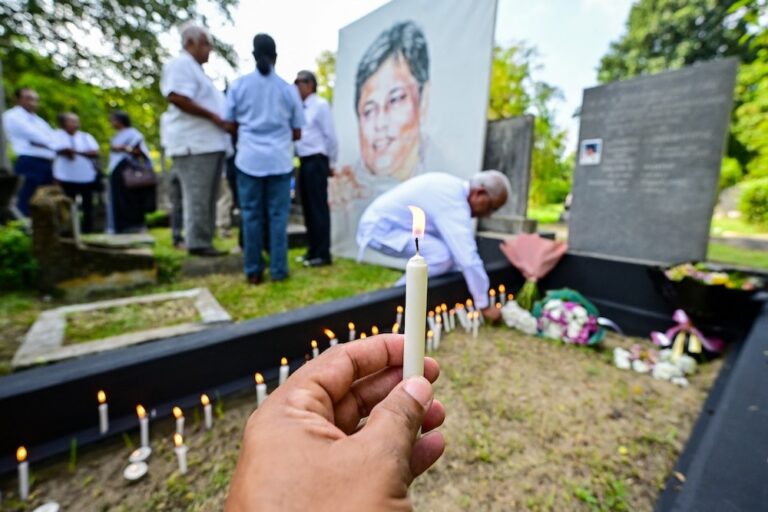(ARTICLE 19/IFEX) – The following is a joint submission to the UN Human Rights Council by the International Federation of Journalists (IFJ), ARTICLE 19, World Association of Newspapers (WAN) and the International Press Institute (IPI): “On the promotion and protection of human rights and fundamental freedoms while countering terrorism” Thank you Mr President. This statement […]
(ARTICLE 19/IFEX) – The following is a joint submission to the UN Human Rights Council by the International Federation of Journalists (IFJ), ARTICLE 19, World Association of Newspapers (WAN) and the International Press Institute (IPI):
“On the promotion and protection of human rights and fundamental freedoms while countering terrorism”
Thank you Mr President. This statement is made on behalf of the International Federation of Journalists and is supported by ARTICLE 19, World Association of Newspapers and the International Press Institute.
There is compelling evidence that in a significant number of countries around the world, the argument about preventing terrorism has given cover to the practice of repression against media and journalists.
This is certainly the case in countries affected by armed conflict where journalists are denied the rights to life and liberty in targeted killings as well as through arbitrary arrest and detention for exercising the right to freedom of expression.
The current crisis in Sri Lanka provides a powerful illustration of this alarming situation. 14 journalists and media staff have been killed in the country since 2006, including prominent journalist Lasantha Wickrematunga, who was murdered on 8 January 2009. Scores more have been arrested, abducted and violently attacked.
Just this morning, former chairman of government-owned broadcaster Damnika Ganganath Dissanayake was kidnapped.
We wish to draw the Council’s attention to the case of senior Tamil journalist J.S. Tissainayagam, who has been in detention in Sri Lanka for one year now, and the recent arrest on February 26 of another senior Tamil journalist, N. Vidyatharan. Their cases testify to the price paid by journalists in Sri Lanka for practising their legitimate profession.
We respectfully request the Council to call upon all States, including Sri Lanka, to ensure that counter-terrorism legislation does not give cover to the practice of repression against media and journalists, but is in accordance with international humanitarian law which provides for the protection of journalists who are working in areas of armed conflict.
UN Security Council Resolution 1738 further calls on governments to respect the rights of journalists to life and liberty.
We appeal to the Council to support effective implementation of these provisions of international law.
We further request that the Council initiate a formal investigation into the application of anti-terror legislation in cases such as that of Tissainayagam in Sri Lanka.
For further information on the Wickrematunga case, see: http://ifex.org/en/content/view/full/99736
For further information on the Tissainayagam case, see: http://ifex.org/en/content/view/full/101340
For further information on the Vidyatharan case, see: http://ifex.org/en/content/view/full/101201


